




Contents
The Making of The Conservative Mind
by
Henry Regnery
 Y THE 1950s, with the work of Albert J. Nock, T.S. Eliot, Richard Weaver, and Eliseo Vivas, among many others, the criticism of liberalism had grown into a substantial literature, but what was lacking was a point of view, or perhaps better, an attitude that would bring the conservative movement together and give it coherence and identity.
Y THE 1950s, with the work of Albert J. Nock, T.S. Eliot, Richard Weaver, and Eliseo Vivas, among many others, the criticism of liberalism had grown into a substantial literature, but what was lacking was a point of view, or perhaps better, an attitude that would bring the conservative movement together and give it coherence and identity.
It was the great achievement, one might even say the historic achievement, of Russell Kirk's The Conservative Mind, which was published in 1953, to provide the needed unifying concept. He not only offered convincing evidence that conservatism was an honorable and intellectually respectable position, but that it was an integral part of the American tradition. It would be too much to say that the postwar conservative movement began with the publication of Kirk's book, but it did give conservatism its name and, more important, the coherence that had been lacking.
When the book that made his reputation was published, Russell Kirk was an instructor in history at Michigan State College. He had written one earlier book, John Randolph of Roanoke, and numerous essays, many of them for English magazines. Canon Bernard Iddings Bell had spoken to me of Kirk, but I came to know him and became his publisher through a mutual friend, Sidney Gair, who had been a textbook traveler for one of the large Eastern publishers, and after his retirement had become associated with our firm.
Gair was a delightful man-a good conversationalist, widely and well read, and courtly in manner. Confirmed conservative that he was, he was a great admirer of Paul Elmer More and Irving Babbitt. What it all comes down to, he used to say, is that a conservative knows that two plus two always, invariably, equals four, a fact of life that a liberal, on the other hand, is not quite willing to accept. It was through him that I met Russell Kirk and published The Conservative Mind, for which I will always remember Sidney Gair with gratitude.
Returning in the early part of 1952 from a trip to some of the colleges in Michigan, Gair told me that a friend of his, a young instructor at Michigan State, had written a manuscript he thought I would be interested in. I remember his description of the young man very clearly: "...the son of a locomotive engineer, but a formidable intelligence-a biological accident. He doesn't say much, about as communicative as a turtle, but when he gets behind a typewriter the results are most impressive."
Some time later, Gair asked me to read a letter Kirk had written to him from St. Andrews in Scotland, in which he described a ninety-mile walk he had just made "from Edinburgh to Alnwich, in Northumberland, over the desolate Lammermuirs and along the Northumbrian coast." After describing various adventures, he expressed the hope that he and I might meet during the summer, and from this beginning a correspondence soon developed.
In reply to my expression of interest in his manuscript, Kirk told me that it was on offer to Knopf, but if they declined it, he would send it. to me. "There has never been a book like it," he remarked in this letter, "so far as breadth of subject is concerned, whatever its vices may be. The subtitle is `An Account of Conservative Ideas from Burke to Santayana."' This letter was followed by a postcard from Trier, Germany, showing a photograph of the Roman Porta Negra, which was my publishing insignia.
Then, on July 31, 1952, Kirk wrote from St. Andrews that Knopf would be willing to publish his manuscript only if he would reduce it to about one-half of its original length, and that he was sending it to me. His manuscript, he said,
is my contribution to our endeavor to conserve the spiritual and intellectual and political tradition of our civilization; and if we are to rescue the modern mind, we must do it very soon. What Matthew Arnold called "an epoch of concentration" is impending, in any case. If we are to make that approaching era a time of enlightened conservatism, rather than an era of stagnant repression, we need to move with decision. The struggle will be decided in the minds of the rising generation-and within that generation, substantially by the minority who have the gift of reason. I do not think we need much fear the decaying "liberalism" of the retiring generation; as Disraeli said, "Prevailing opinions are generally the opinions of the generation that is passing." But we need to state some certitudes for the benefit of the groping new masters of society. More than anyone else in America you have been doing just this in the hooks you publish.
On August 21st, I acknowledged this letter and the receipt of the manuscript, which after his description I was most anxious to read. My judgment of manuscripts has often been faulty, but with this one I knew that I had an important, perhaps great book, and although I had some doubts about its commercial possibilitieswhich proved to be unfounded-I was determined to publish it. In reply to my letter to this effect, Kirk, after urging me "not to forsake our Lake States for the East," had this to say about the battle we both felt we were engaged in:
It may well be that we shall he trampled into the mire, despite all we can do. But Cato conquered. And we shall, in any event, be playing the part which Providence designed for its. Even the failure of Charles I, after all, was in the long view of history a considerable success. By opposing what seems inevitable, often we find that its force is not irresistible; and at the worst, we have the satisfaction of the heroic attitude of the Sassenach confronting Roderick Dhu's crew
Come one, come all; this rock shall fly
From its firm base as soon as I!
The manuscript was in beautiful shape, and could have been sent out for typesetting as it had come in, except for the original title, which none of us thought would do-"The Conservative Rout." Sidney Gair suggested "The Long Retreat," which was worse (he thought "rout," as I mentioned to Kirk in a letter, "sounded `too hasty"'). Russell replied, not too helpfully, that "there is a rather fifeand-drum sound to `rout,"' but we kept trying until someone suggested "The Conservative Mind," which Kirk readily accepted.
Great care was given to the design of the book, which I wanted to be appropriate to the dignity of its language and the importance of what it has to say. The jacket confidently and, as it turned out, correctly predicted that this was a book which "will become a landmark in contemporary thinking," and on the hack of the jacket, to make it evident that The Conservative Mind was not a solitary effort on our part, we listed four recently published books: The Republic and the Person, by Gordon Chalmers; The Return to Reason, essays in rejection of naturalism by thirteen American philosophers and Charles Malik of Lebanon; The Forlorn Demon: Didactic and Critical Essays, by Allen Tate; and Wyndham Lewis' Revenge for Love.

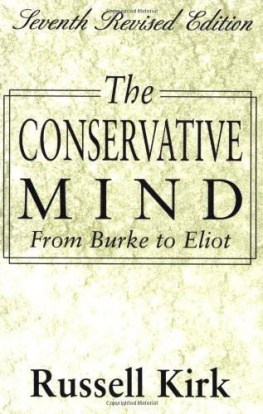
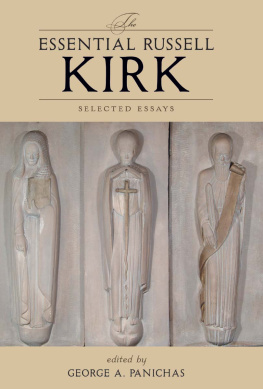

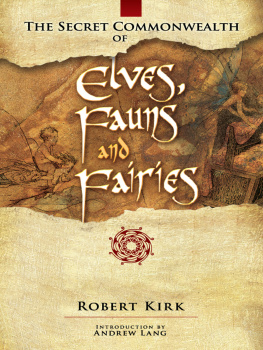
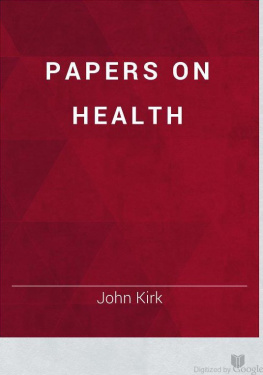


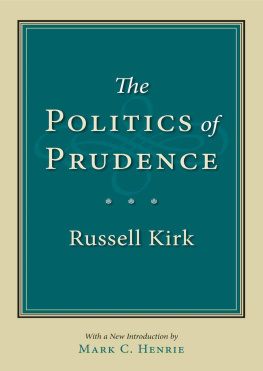
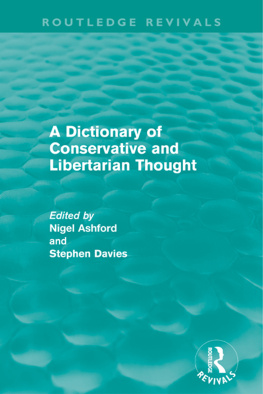
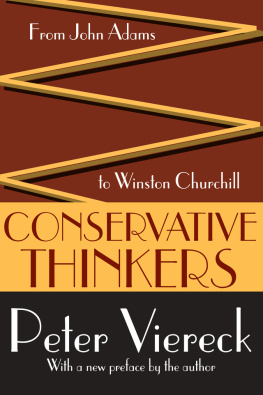
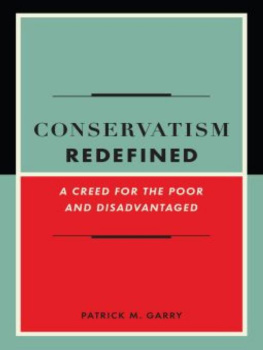
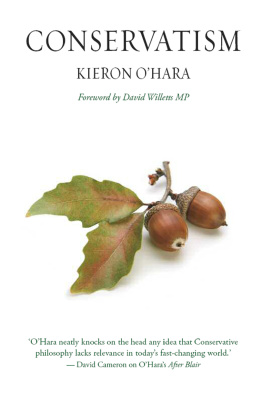
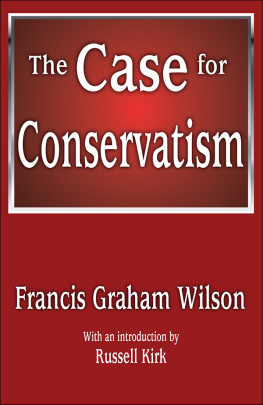
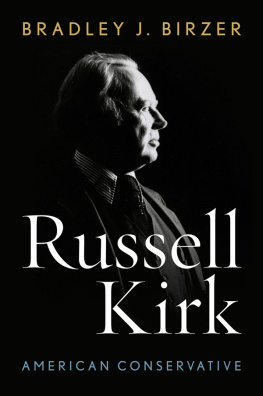




 Y THE 1950s, with the work of Albert J. Nock, T.S. Eliot, Richard Weaver, and Eliseo Vivas, among many others, the criticism of liberalism had grown into a substantial literature, but what was lacking was a point of view, or perhaps better, an attitude that would bring the conservative movement together and give it coherence and identity.
Y THE 1950s, with the work of Albert J. Nock, T.S. Eliot, Richard Weaver, and Eliseo Vivas, among many others, the criticism of liberalism had grown into a substantial literature, but what was lacking was a point of view, or perhaps better, an attitude that would bring the conservative movement together and give it coherence and identity.